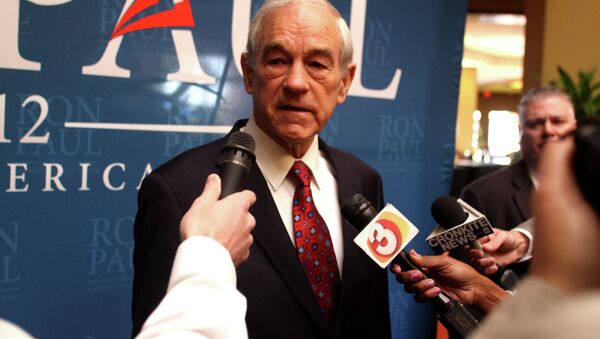In a decision hailed as a major victory for privacy advocates, the Second US Circuit Court of Appeals ruled on Thursday that the National Security Agency’s mass collection of phone records is illegal. Does that mean we no longer have to worry some analyst is jotting down that banana pudding recipe as your mom tells you over the phone? Can we openly complain about the post office without fear of the postman purposely losing our letters? Can Edward Snowden, at long last, return home?
Probably not. While the court ruled that the Patriot Act, on which the NSA’s program was justified, was too vague, former Texas congressman Ron Paul points out: that was the government’s plan all along. That nebulous nature could allow the program to live on.
"Even if Congress had explicitly authorized the government to collect our phone records, that law would still be unconstitutional because the Constitution does not grant government the power to access our personal information without a valid search warrant," Paul writes for the Ron Paul Institute.
While the court ruled the program illegal, it did not demand an end to the data collection. Adjustments will be decided on by the legislative branch, as the "Appeals Court decided to let Congress decide how to re-authorize this spying program."
Anyone expecting Congress to reign in government spying may be very disappointed.
"If past practice is any lesson, Congress will wait until the spying program is about to expire and then in a panic try to frighten Americans into accepting more intrusions on their privacy," Paul writes.
He notes that Senate Majority Leader Mitch McConnell has already introduced a bill which would delay Congress’ decision.
"His stop-gap?" Paul writes. "A five year re-authorization with no changes to the current program!"
Still, there are other reform bills being introduced which seek to address the court’s decision. The FREEDOM Act, for one. But that bill may be no better.
"Pretending to be a step in the right direction, the FREEDOM Act may actually be worse for our privacy and liberties than the PATRIOT Act!"
While government spying will undoubtedly remain a concern in the United States, Paul also takes time to speak on the scope of Australia’s domestic surveillance.
"Last month Australia passed a law requiring telecommunications companies to retain metadata information on their customers for two years," Paul writes.
What’s the connection? Why should the American people care about Australia’s law?
"Because the NSA ‘reform’ legislation before Congress, the FREEDOM Act, does exactly what the Australian law does: it mandates that US telecommunications companies retain their customers’ metadata information so that the NSA can access the information as it wishes."
Paul also notes that while the court’s decision should, theoretically, clear former NSA contractor Edward Snowden, this will likely not be the case.
"One silver lining in the court decision is that it should exonerate Ed Snowden, who risked it all to expose what the courts have now found was illegal US government activity. That is the definition of a whistleblower," he writes.
"Shouldn’t he be welcomed back home as a hero instead of being threatened with treason charges? We shouldn’t hold our breath!"
Before you celebrate the court’s decision, Paul warns, remember: "The only reform of the PATRIOT Act is a total repeal. Accept nothing less."






